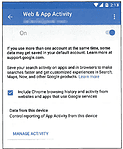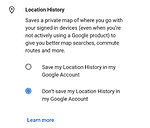Court finds Google misled consumers about the collection and use of location data
3 min. read
Updated on
Read our disclosure page to find out how can you help MSPoweruser sustain the editorial team Read more

Google has run into trouble with regulators again, this time on the other side of the world.
Yesterday the Australian Federal Court found that Google misled consumers about personal location data collected through Android mobile devices between January 2017 and December 2018.
The complaint was brought by the Australian Competition and Consumer Commission.
“This is an important victory for consumers, especially anyone concerned about their privacy online, as the Court’s decision sends a strong message to Google and others that big businesses must not mislead their customers,” ACCC Chair Rod Sims said.
“Today’s decision is an important step to make sure digital platforms are up front with consumers about what is happening with their data and what they can do to protect it.”
The Court ruled that when consumers created a new Google Account during the initial set-up process of their Android device, Google misrepresented that the ‘Location History’ setting was the only Google Account setting that affected whether Google collected, kept or used personally identifiable data about their location. In fact, another Google Account setting titled ‘Web & App Activity’ also enabled Google to collect, store and use personally identifiable location data when it was turned on, and that setting was turned on by default.
The Court also found that when consumers later accessed the ‘Location History’ setting on their Android device during the same time period to turn that setting off, they were also misled because Google did not inform them that by leaving the ‘Web & App Activity’ setting switched on, Google would continue to collect, store and use their personally identifiable location data.
Similarly, when consumers later accessed the ‘Web & App Activity’ setting on their Android device, they were misled because Google did not inform them that the setting was relevant to the collection of personal location data.
The Court also found that Google’s conduct was liable to mislead the public.
“We are extremely pleased with the outcome in this world-first case. Between January 2017 and December 2018, consumers were led to believe that ‘Location History’ was the only account setting that affected the collection of their personal location data, when that was simply not true,” Mr Sims said.
“Companies that collect information must explain their settings clearly and transparently so consumers are not misled. Consumers should not be kept in the dark when it comes to the collection of their personal location data.”
The ACCC is seeking declarations, pecuniary penalties, publications orders, and compliance orders. This will be determined at a later date.
“In addition to penalties, we are seeking an order for Google to publish a notice to Australian consumers to better explain Google’s location data settings in the future. This will ensure that consumers can make informed choices about whether certain Google settings that personal collect location data should be enabled,” Mr Sims said.
via XDA-Dev













User forum
0 messages